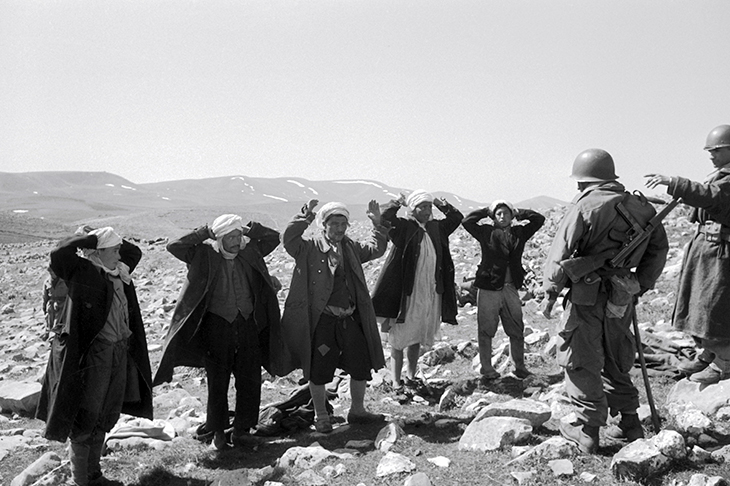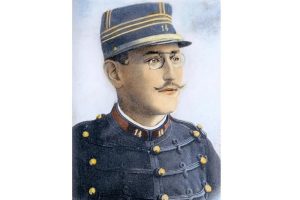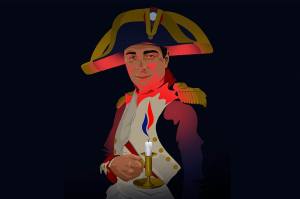In France, even the car horns yelled about Algeria. A five-beat klaxon blast — three short, two long — signaled Algérie française. In the early 1990s, I slunk into a rally held by Jean-Marie Le Pen in Nice to find that for the ranks of cropped, thickset pieds-noirs in leather jackets, the bloodbaths and betrayals three decades back in Oran, Constantine or Algiers drove what they thought and how they voted. A generation later, Algerian migrants or returnees — Arab, Kabyle, European — now have second- and third-generation families. But the atrocity-littered independence war of 1954-62, and its gruesome aftermath, remain festering wounds. France, as President Macron put it last July when he charged the historian Benjamin Stora to report on the conflict’s public memory, still suffers from its badly healed scars.
Stora submitted his report on January 20. It proposes a ‘Memory and Truth’ commission to mediate between the competing histories that split the millions of French with Algerian affiliations into hostile camps. Well, bon courage with that. Two freshly translated novels, new arrivals on a long shelf of Franco-Algerian fiction, show how tough a task awaits any reconciler of the past’s mangled accounts. Not only, as Alice Zeniter’s heroine Naïma reflects in The Art of Losing, has each community ‘reached an agreement on the version of history that suited them’, but internal rifts fragment them. The Art of Losing centers on the bleak fate of the harkis, Algerians loyal to France, while Joseph Andras’s Tomorrow They Won’t Dare to Murder Us dramatizes the last days of Fernand Iveton. He was the only European Algerian ever guillotined — rather than killed in combat, or under torture — as an independence fighter.
Both books ask what it means to choose, or to inherit, the wrong side of a cherished collective history. Mining her own family’s experience, Zeniter spans three generations of a Kabyle (Berber) clan from the craggily beautiful mountain country southeast of Algiers. In the 1950s, grandfather Ali – whose ‘cyclical’ village life has continued at an idyllic distance from events — falls into the pro-French harki camp almost by accident. Ali opts to ‘seek protection from murderers he despised with other murderers he despised’. As the FLN guerrillas force French withdrawal in 1962, he and his children escape the reprisal massacres that slaughtered Arab or Kabyle ‘traitors’.
In the grim refugee camps of France’s Midi region, the family finds that ‘Algeria will speak of them as rats’, France, ‘not at all’. They carry their silence to Normandy, where the stoic Ali toils in a steel plant. An austere flat on a drizzle-soaked estate shelters his wife Yema and their growing family, as memory bathes the lost land in ‘the colors of nostalgia’. France, like Britain, hardly lacks for migrant fictions now, but Zeniter traces their lonely passage exceptionally well. Her fine-grained scenes unroll into a grander historical canvas. The translator Frank Wynne, in another stellar outing, stylishly catches both her intimate and epic notes.
Hamid, the Algerian-born eldest son, aspires to break the silence. He knows that ‘in order to be understood, he would need to tell his story’. Slowly, his horizons widen and brighten: hedonistic student days in post-1968 Paris; a secure job in government offices; marriage to Clarisse, an arty Burgundian. His parents’ sacrifices bless and curse their children; for Hamid, ‘I hated the fact that they gave me everything while they stopped living.’ Modestly, he thrives, but at the cost of oblivion: he seems to have ‘confused integration with a scorched-earth policy’.
Only the third generation can unlock the sealed chest of history. Hamid’s daughter Naïma fashions a smart modern life as a Paris gallerist. ‘Trapped between two stereotypes’, ‘secular’ and ‘traditional’, she grabs a chance to visit her ancestral mountains and replace ‘a lost country with a real country’. Touching episodes of misunderstanding and embarrassment punctuate this quest for roots as the chic Parisienne blunders through the Kabylian highlands. Painfully, Naïma forges new bonds based on ‘friendships and possibilities’, not myths of origin. With its panoramic vision and generous spirit, The Art of Losing finds shoots of hope amid the stony landscapes of the past.
In contrast to Zeniter’s warm hug of a dynastic saga, Andras delivers a brisk, angry slap of outraged idealism. His galloping novella begins with Fernand Iveton’s failed bid to sabotage the gas plant where he worked in 1956. The Algerian communist, with French and Spanish parents, is captured and hideously tortured: beatings, electric burns, waterboarding. Iveton, who dreamed of a free, pluralistic, nonracial Algeria, aimed to cause damage, not injury or death, since ‘barbarity cannot be beaten by emulation, blood is no answer to blood’.
Both the insurgent FLN and the merciless French authorities severely disagreed. In his classic history A Savage War of Peace, Alistair Horne even suggests that the FLN itself might have betrayed Iveton to harm the rival, godless communists. Swiftly, he goes to court and — despite the defused bomb, the marks of torture — gets a capital sentence. Andras’ powerful narrative races through this final act while flashing back to Iveton’s life with his Polish wife, Hélène. His lawyers petition in vain; in Paris, the hardline justice minister — François Mitterrand, no less — stands firm. President Coty privately concedes the injustice, but no pardon comes. Reason of state prevails: ‘his head will fall’. In the Algiers dawn, on February 11, 1957, it does.
Translated with angular, discomfiting urgency by Simon Leser, Andras’ semidocumentary story frames Iveton as a sort of heroic opposite to Camus’ alienated Meursault in L’Étranger. This European Algerian loves all his neighbors ‘without distinction of origin’; he knows why he lives, why he dies. Andras’s stark monochrome hardly allows for the mingled colors of doubt and ambivalence that enrich Zeniter’s book. Together, though, both novels argue that it will take more than state commissions to quieten the blaring memories of Algeria — those ‘multiple countries that jostle, clash and merge’ — in still-divided France.
This article was originally published in The Spectator’s May 2021 World edition.


















